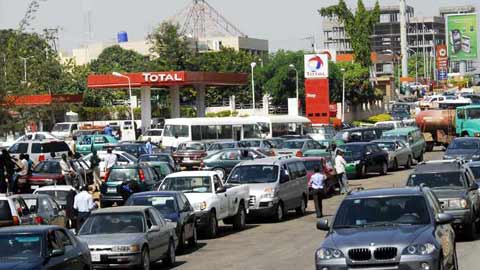Following the reports that crude oil prices has hit a seven-year low with global reference crude, West Texas Intermediate and Brent trading yesterday at $34.7 and $36.7 per barrel respectively, which effectively disrupting Nigeria’s $38 per barrel benchmark for 2016 budget, the Federal Government has found it necessary and imperative to remove the fuel subsidy as well as increasing the petroleum price from N87 to N97.
The crash has resulted into about N1.45 trillion shortfall in the value of the projected oil output in the international market based on production target increased in the 2016 plan to 2.2 million barrel per day (mbpd), up from actual 1.9 mbpd in 2015.
On official exchange rate of N198/ $1 upon which the revenue projection was based, the value of the total budgeted oil output is $35.14 billion or N6.95 trillion but with the latest price development, the output would now yield $27.8 billion or N5.5 trillion.
With the latest crude oil price development, 2016 budget deficit would increase to about N2.7 trillion from N2.22 trillion, assuming government is able to meet its target of 2.2 mbpd, otherwise the deficit would be much higher.
Also, the development, according to economy analysts, would put more pressure on the external reserves and the exchange rate while forcing the government to resort to more borrowing, thereby increasing both its deficit-to-GDP ratio and debt-to-GDP ratio.
In the 2016 fiscal plan, deficit/GDP ratio was more than doubled to 2.2 per cent, from actual one per cent as at September 2015.
According to the 2016 fiscal plan, Federal Government would only have a marginally increased contribution from value added tax, VAT, at N67.7 billion in 2016, from N67.5 billion in 2015 while an additional inflow of N350 billion is expected to come from misappropriated funds recoveries.
The deficit will necessitate borrowings worth N1.8 trillion of which domestic borrowing is fixed at N1.2 trillion while foreign borrowing is about N600 billion. If the oil price remains gloomy in the coming year borrowings would increase or the government would be forced to effect a further cut on expenditure.
Already, recurrent expenditure is projected to fall from 84 per cent in 2015 to 70 per cent in 2016 while capital expenditure is expected to increase from 16 per cent in 2015 to 30 per cent in 2016.
The latest price shock is coming less than a week after the Federal Executive Council, FEC, approved the 2016 Medium Term Expenditure Framework, MTEF, which outlined government’s revenue as well as a deficit budget to be funded largely by the oil income.The 2016 budget is derived from the MTEF which is a three-year fiscal plan.
Crude oil prices have been on the decline since last week after the decision by Organisation of Petroleum Exporting Countries (OPEC)’s to maintain crude oil production.
The price of OPEC basket of 12 crudes stood at $34.69 a barrel on Thursday last week and was $34.80 a barrel the previous day.
Brent crude futures fell below $38 a barrel for the first time since December 2008 on Friday last week. WTI also settled at $35.62 a barrel, down by 3.1 percent, or $1.14.
The U.S Energy Information Administration (EIA) in its December oil market report released at the weekend, forecasts that Brent crude oil prices will average $53 per barrel in 2015 and $56 per barrel in 2016.
It stated: “EIA’s crude oil price forecast remains subject to significant uncertainties as the oil market moves toward balance.
“During this period of price discovery, oil prices could continue to experience periods of heightened volatility. The oil market faces many uncertainties heading into 2016, including the pace and volume at which Iranian oil reenters the market, the strength of oil consumption growth, and the responsiveness of non-OPEC production to low oil prices”.



Leave a Reply